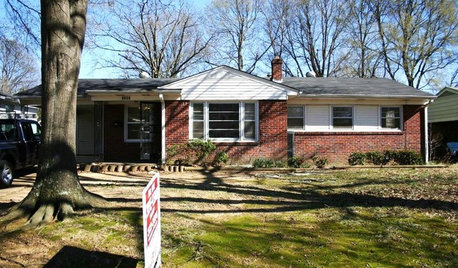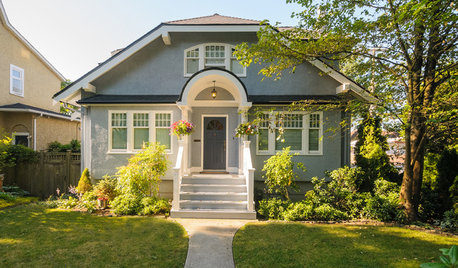WHEN SELLERS WON'T BUDGE
Unrealistic expectations inflate asking prices and give agents a sinking feeling
Julie Clairmont, Special to The Chronicle
Sunday, December 3, 2006
Ask any real estate agent worth her lockbox key to identify the No. 1 reason houses sit on the market. Her likely answer: The sellers want too much for them.
Almost any house will sell if it's priced right, agents routinely preach. But in today's market overpriced houses are increasingly common as supply continues to outweigh demand and would-be sellers balk when told that their house may not be worth as much as it was six months ago.
These anchors on the market ultimately hurt the seller's bottom line, agents say. "When you come on too high, and your property sits on the market with no activity, it gets stigmatized," said Aldo Congi, vice president and managing broker at McGuire Real Estate in San Francisco. "The first thing every buyer asks is: 'How long has it been on the market?' "
If the answer is more than six weeks, another predictable line of questioning follows, he says: "They start to ask: What's wrong with it? Is it just overpriced? Or are there other issues?"
And that's where the problems begin. There's a momentum to selling a home, agents say.
Like a debutante at her first ball, a house is most intriguing when it hits the market, but let it languish too long and buyers become fickle suitors. "A property that is priced appropriately just doesn't sit on the market for six months," Congi said.
Pricing a house correctly is so integral to its sale that most brokers hammer pricing strategy into their new agents' heads. Almost all listing presentations for sellers include some sort of ominous graph charting the dismal future of an overpriced house, with an arrow heading further south for each week a house stays isn't sold.
Hitting that perfect price point is so important, it's a large part of Congi's job to make sure agents aren't overpricing listings. He spends a lot of his time previewing the market competition, and consults regularly with agents in his office who want a second opinion on how to price a listing.
"The old adage that you can use sales comparables from up to three months ago is lost in this transitional market," Congi said. "We really need to get sales comparables from properties that are in escrow within the last 30 days."
While the data and forecasts vary slightly depending upon which agency generates it, it all indicates the housing market is cooling significantly.
"The Bay Area is experiencing the same thing that is happening around the country: a sharp, steady deceleration in appreciation," said Patrick Lawler, chief economist for the Office of Federal Housing Enterprise Oversight.
The latest numbers released last week by the California Association of Realtors show sales activity in the Bay Area increased 2.4 percent in August from the previous month, but year over year that number is down 13.8 percent.
Nationally, existing home sales are expected to fall 8.6 percent this year, and are projected to even out in 2007 with a 0.6 percent decline, according to the National Association of Realtors.
"Given the huge gains in home values during the housing boom, and this year's rise in housing inventory, overall price gains this year and next will be modest," said David Lereah, the association's chief economist, in an October press release.
Congi reports that his office's sales are down 30 percent from last year, with the average time on the market about 30 days. Most offers that come in are under the asking price, and multiple offers are now isolated incidences. "It's more common for a house to sell under the asking price in this market," Congi said.
In Contra Costa County, there are roughly twice as many active listings on the multiple listing service as there were last year at this time, says California Association of Realtors President Larry Spiteri, manager of Intero Real Estate Services in Danville.
Still, getting sellers to realize that their home is not worth what it used to be poses a challenge for even the most seasoned agents. "It's very difficult to go in (to a listing presentation) and say: 'Look, just because the house down the street sold for X amount six months ago, it doesn't mean your house is going to sell for that now,' " Spiteri said.
"And it's hard for sellers because they feel like they're leaving money on the table, like they're giving their money away."
Adding to the challenge, agents say, is a common misconception among sellers that agents control the price of homes. "We try to sell the house for the highest price possible, but we don't control the market, buyers do," Spiteri said.
"Pricing a home is both art and science. The science part is using statistical data like appraisers use, such as price per square foot and recent sales comparables, the art means we have to look at all the variables and dynamics out there," Spiteri said, "everything from interest rates, to how many new homes are being built in an area, to where the buyers are coming from."
Another misconception sellers have is thinking that their home's improvements and amenities mean it will sell at last year's prices. "If your house is in really good condition, you should actually price it a little bit less than the other houses on the market, then it will probably sell fairly quickly," Spiteri said.
Shelly Moore, who just sold her Walnut Creek home, fell into this thought process. "We bought it during a bidding war, so at first it was pretty hard for us to swallow," says Moore. "We had a new kitchen and hardwood floors, and we were comparing our features to those of houses on the market. But our agent reminded us that those houses weren't sold."
The Moores are a success story. They put their home on the market at $1.15 million, and received an offer within a week, albeit, a low one. The offer came in at about 25 percent under asking price, but their agent was able to negotiate it up to $1.125 million. But getting there was a little nerve-racking, Moore said. "It took us about six weeks to get our house ready for the market, and we could see the home prices going down."
"A lot of homes show beautifully, and are marketed correctly, but they're not priced right," said Moore's agent, Julie Dudum of Empire Realty Associates in Walnut Creek. "I don't care if you have the Goodyear Blimp over your house, if it's overpriced, it's not going to sell."
Dudum recommends pricing homes 10 to 12 percent under the most recent and relative sales comparables. "People think that's extreme at first, but in a market where you can't drive down the street without seeing 8 to 10 for-sale signs, you have to stay ahead of the curve."
If a seller is adamant about pricing their house too high, Dudum strikes a deal: She gives them 16 days on the market at their price, but if no offer comes in, the seller promises to reduce the price to even lower than her original suggested price. "Because now we have to get ahead of the curve again," she says.
One of the reasons houses don't get priced correctly is that some agents have a problem taking the reins, Dudum said.
"I tell clients: Look, it's my time and advertising dollars, and your emotions we're investing here. I don't tell a dentist which tooth to pull, so if you're going to hire me, trust me."
Sellers often mistakenly believe they can price their house anywhere and someone will bring them an offer, based on what they feel its worth, agents say, but that's not the case.
"You need to be priced at a level where you spur a buyer to action, but not purposely underpriced," said McGuire's Congi. "Then you risk scaring people away, because they think you're trying to start a bidding war."
Even when an agent makes every effort to price a home correctly, the market can shift suddenly or four more houses pop up for sale on the same street, and an agent then has the unenviable job of recommending a price reduction.
"Difficult as it may be, you have to knock on their door and do it," said Dudum, the Walnut Creek agent. "It's a horrible conversation that no agent wants to have."
If a seller must cut the price, there's a strategy for that too, Congi said. "Just like you only have once chance to make a splash as a new listing on the market, and you only get one chance to get noticed with a price reduction."
Congi recommends the 10 percent rule. "The general logic is that if the house has been on the market for four to six weeks without an offer, you can rest assured your are about 10 percent over the value. If you reduce the price on your house by bits and pieces, you get stale."
In this buyer's market, certain houses will still sell within a week or so, but it usually takes having the "full package," Dudum said, "how the house shows, staging, a full-blown marketing campaign and the right price."
There are a few micro-markets left in San Francisco where activity is still brisk, Congi said. Among these are Pacific Heights, Jordan Park, the Marina District. Houses that are redone and don't have significant defects are selling more quickly.
But for now, the norm seems to be a plethora of "reduced price" riders on for-sale signs, ads screaming "Motivated Seller!" and agents lining up to announce their latest price reductions at weekly staff meetings.
The agents say don't blame them. "The last thing any agent wants is an overpriced property that sits on the market," Congi said. "All you end up with is a big advertising bill and a signed withdrawal form from your seller."
Julie Clairmont is a part-time real estate agent in Contra Costa County. Comment at realestate@sfchronicle.com.
Page K - 6
URL: http://sfgate.com/cgi-bin/article.cgi?file=/c/a/2006/12/03/REGMDMN58J1.DTL
The above article can be found at SFGate.com
















trying2buy
drcindy
Related Discussions
When does a seller's responsibility end?
Q
This house just won't close
Q
Do sellers step out of the house when it is being shown to buyer
Q
What to do when they just won't grow?
Q
minet
talley_sue_nyc
talley_sue_nyc
brickeyee
mary_md7
jay06
jakkom
jay06
trying2buy
dreamgarden
brickeyee
dabunch
sweet_tea